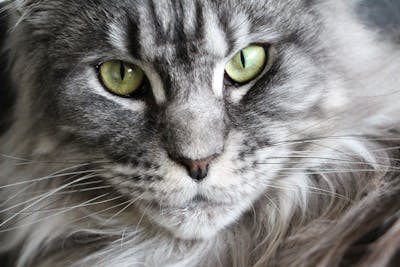Sphynx Cat Care Tips: A Comprehensive Guide to Caring for Your Hairless Companion

The Sphynx, with its hairless body, wrinkled skin, and large, expressive ears, is a breed that commands attention. These unique felines are not only visually striking but also possess a charming and affectionate personality that endears them to their owners. However, their lack of fur presents a unique set of care requirements that differ significantly from those of their coated counterparts. This article will provide you with a comprehensive guide on Sphynx cat care.
Owning a Sphynx is a rewarding experience, but it’s crucial to understand that these cats require specialized care to maintain their health and well-being. Their hairless nature makes them more susceptible to temperature fluctuations, skin problems, and sunburn. This guide will provide essential Sphynx cat care tips to help you navigate the unique challenges and joys of living with one of these extraordinary felines. This article will help you to provide the best care for your Sphynx.
This comprehensive guide will cover everything from bathing and skin care to temperature regulation and dietary needs. We’ll also discuss common health concerns and provide practical tips for creating a safe and stimulating environment for your hairless cat. By understanding and addressing the specific needs of your Sphynx, you can ensure they live a happy, healthy, and fulfilling life. This article will help you to understand the unique needs of this breed.

1. Bathing and Skin Care: Keeping Your Sphynx Clean and Healthy
Unlike coated cats, Sphynx cats don’t have fur to absorb the natural oils produced by their skin. These oils, along with dirt and debris, can accumulate on their skin, leading to a greasy or sticky feel and an unpleasant odor. Regular bathing is essential for keeping your hairless cat clean and healthy. Most Sphynx cats require a bath once a week or every two weeks.
Use a gentle, hypoallergenic shampoo specifically formulated for cats. Avoid using human shampoos, as they can be too harsh for a Sphynx’s sensitive skin. Make sure the water is lukewarm, and rinse your cat thoroughly to remove all traces of shampoo. After the bath, gently towel dry your cat, paying special attention to the folds of their skin. Proper bathing is essential for Sphynx cat care.
In addition to regular baths, you may need to wipe down your Sphynx with a damp cloth or pet-safe wipes in between baths to remove excess oil and dirt. Pay particular attention to areas prone to oil buildup, such as the ears, paws, and under the chin. Regular cleaning of these areas can help prevent skin problems and keep your cat feeling fresh.

2. Ear Care: Maintaining Hygiene for those Large Ears
The large, open ears of Sphynx cats are prone to accumulating dirt, wax, and oil. Regular ear cleaning is an important part of Sphynx cat care tips. Use a veterinarian-approved ear cleaning solution and cotton balls to gently clean the visible parts of your cat’s ears. Never insert anything into the ear canal, as this can cause damage. These cats are known for their large ears.
Inspect your hairless cat’s ears weekly and clean them as needed. If you notice any redness, inflammation, or a foul odor, consult your veterinarian, as these could be signs of an ear infection. Regular ear care can help prevent infections and keep your cat comfortable. Proper ear care is essential for maintaining your cat’s health.

3. Temperature Regulation: Keeping Your Sphynx Comfortable
Due to their lack of fur, Sphynx cats are more sensitive to temperature changes than other breeds. They can easily become chilled in cold weather and overheated in warm weather. It’s important to provide them with a comfortable environment and take steps to regulate their body temperature. These cats are sensitive to temperature changes.
In colder months, provide your hairless cat with warm bedding, such as a heated cat bed or a cozy blanket. You may also consider dressing them in a sweater or shirt designed for cats. In warmer months, make sure your cat has access to cool, shaded areas and plenty of fresh water. Never leave your Sphynx outdoors in extreme temperatures.
4. Sun Protection: Shielding Your Sphynx from Harmful Rays
Just like humans, Sphynx cats can get sunburned. Their delicate skin is not protected by fur, making them susceptible to the sun’s harmful UV rays. Limit your cat’s exposure to direct sunlight, especially during the hottest part of the day. If your cat enjoys spending time outdoors, provide them with a shaded area or consider using a pet-safe sunscreen on exposed areas.
It is generally recommended to keep Sphynx cats as indoor pets to minimize their exposure to the sun and other environmental hazards. If you do allow your cat outdoors, supervise them closely and ensure they have access to shade and water. Protecting your cat from the sun is an important part of Sphynx cat care tips.
5. Diet and Nutrition: Fueling Your Hairless Companion
Proper nutrition is essential for the health and well-being of any cat, and Sphynx cats are no exception. Due to their high metabolism, they may require more food than other breeds of similar size. Choose a high-quality cat food that is formulated to meet the nutritional needs of your cat’s life stage (kitten, adult, or senior). These cats have a high metabolism.
Some Sphynx owners opt for a raw or homemade diet, but it’s crucial to consult with a veterinarian or veterinary nutritionist to ensure the diet is balanced and complete. Provide your cat with fresh, clean water at all times. Proper hydration is essential for maintaining healthy skin and overall well-being. A balanced diet is essential for your cat’s health.
6. Common Health Concerns: Being Proactive About Your Sphynx’s Health
While generally healthy, Sphynx cats can be prone to certain health conditions. Hypertrophic cardiomyopathy (HCM), a heart condition that causes thickening of the heart muscle, is more common in this breed than in some others. Regular veterinary checkups, including echocardiograms, can help detect HCM early. These cats can be prone to certain health conditions.
Sphynx cats may also be more susceptible to skin problems, such as urticaria pigmentosa, a condition that causes itchy, red bumps on the skin. Maintaining good skin hygiene can help prevent some skin issues. Regular veterinary checkups are essential for monitoring your cat’s health and addressing any concerns promptly. Early detection is key to managing health problems.
Conclusion and Summary
Caring for a Sphynx cat is a unique and rewarding experience. Their hairless nature requires special attention to skin care, temperature regulation, and sun protection. By following these Sphynx cat care tips, including regular bathing, ear cleaning, providing a comfortable environment, and ensuring proper nutrition, you can help your hairless cat thrive. Regular veterinary care is also crucial for monitoring their health and addressing any potential concerns. With the right care and attention, your Sphynx will bring you years of joy and companionship.
Frequently Asked Questions (FAQs)
1. How often should I bathe my Sphynx cat?
Most Sphynx cats require a bath once a week or every two weeks, but the frequency may vary depending on the individual cat’s skin oil production.
2. What kind of shampoo should I use for my Sphynx?
Use a gentle, hypoallergenic shampoo specifically formulated for cats. Avoid using human shampoos, as they can be too harsh.
3. Do Sphynx cats get cold easily?
Yes, due to their lack of fur, Sphynx cats are more sensitive to cold temperatures. Provide them with warm bedding and consider using a cat sweater in colder months.
4. Can Sphynx cats go outside?
It’s generally recommended to keep Sphynx cats indoors to protect them from sunburn, extreme temperatures, and other hazards. If allowed outdoors, they should be supervised and provided with shade.
5. Do Sphynx cats need sunscreen?
Yes, Sphynx cats can get sunburned. Use a pet-safe sunscreen on exposed areas if your cat spends time in direct sunlight.
6. What kind of food should I feed my Sphynx cat?
Feed your Sphynx a high-quality cat food that meets their nutritional needs. Due to their high metabolism, they may require more food than other breeds of similar size.
7. Are Sphynx cats hypoallergenic?
No, Sphynx cats are not hypoallergenic. While they lack fur, they still produce the Fel d 1 protein, which is the primary allergen in cat saliva and dander.
8. What are some common health problems in Sphynx cats?
Sphynx cats can be prone to hypertrophic cardiomyopathy (HCM) and skin conditions like urticaria pigmentosa. Regular veterinary checkups are important.
9. How can I keep my Sphynx cat entertained?
Provide your Sphynx with a variety of toys, including interactive toys, puzzle toys, and climbing structures. Engage in regular play sessions to keep them stimulated.
10. Do Sphynx cats get along with other pets?
Sphynx cats are generally social and can get along with other pets, including dogs, if properly introduced and socialized. Their friendly nature makes them adaptable to multi-pet households.







